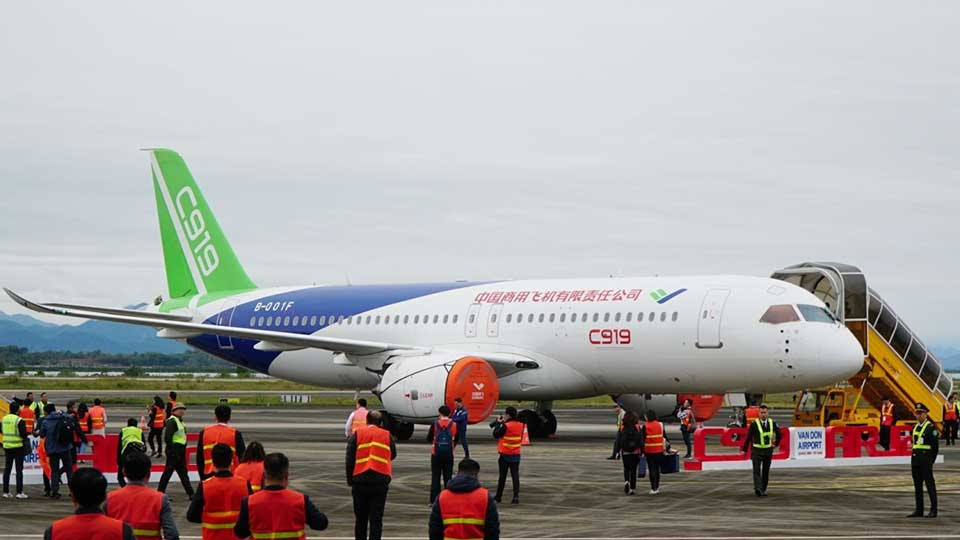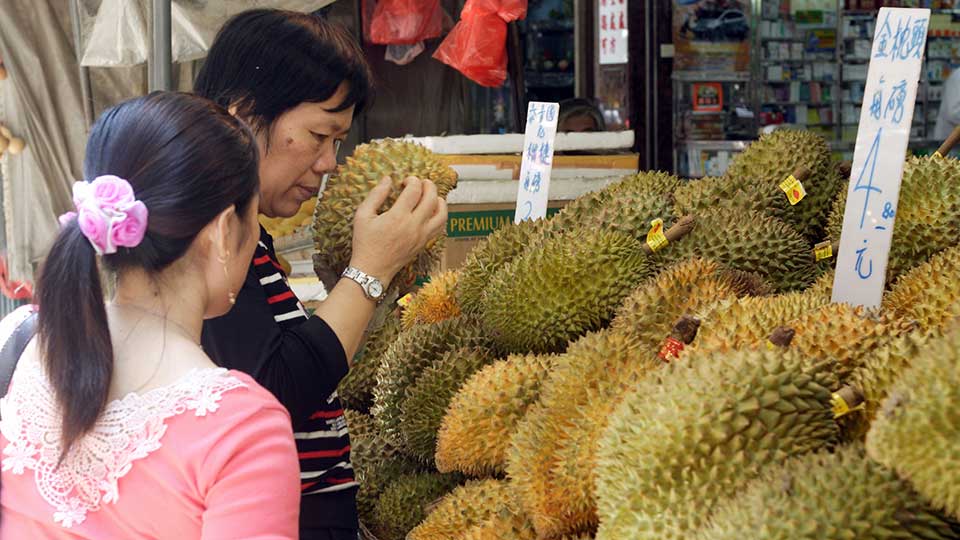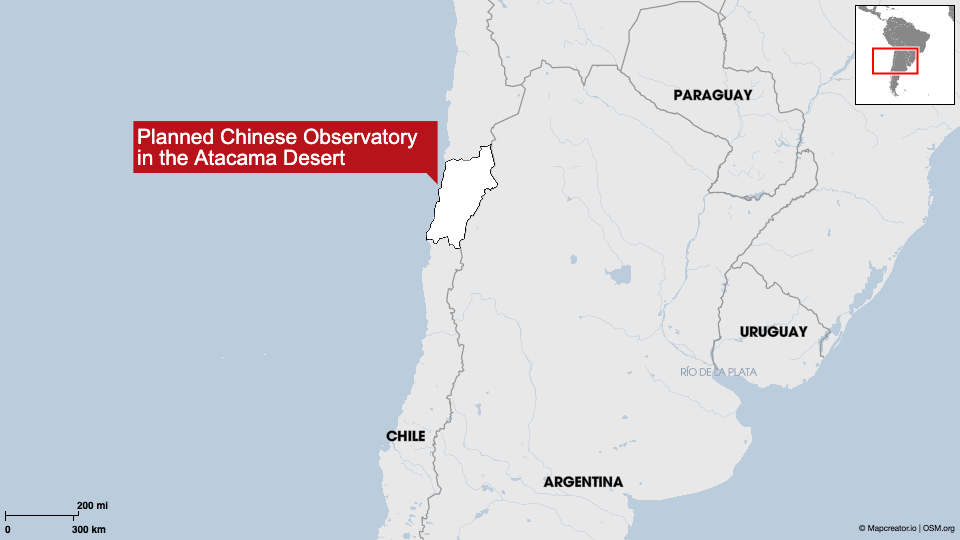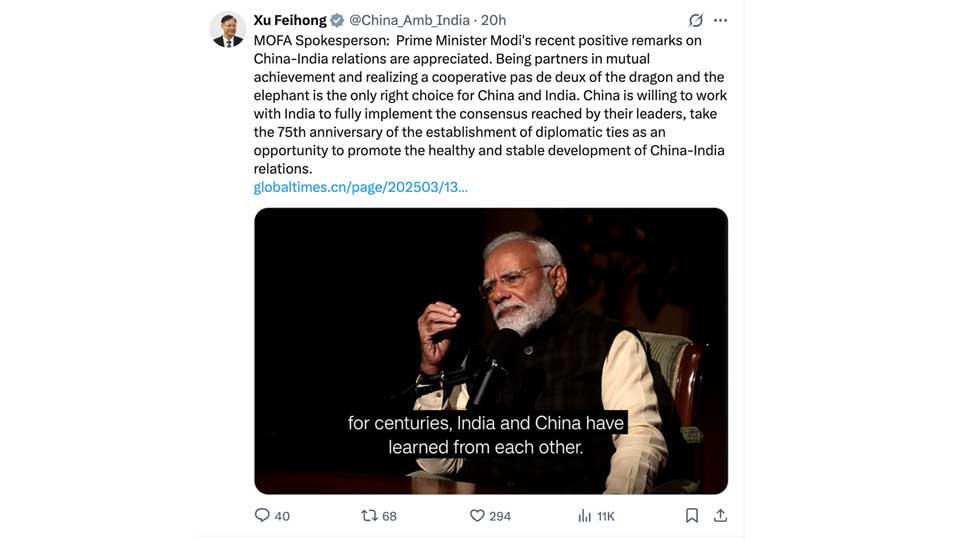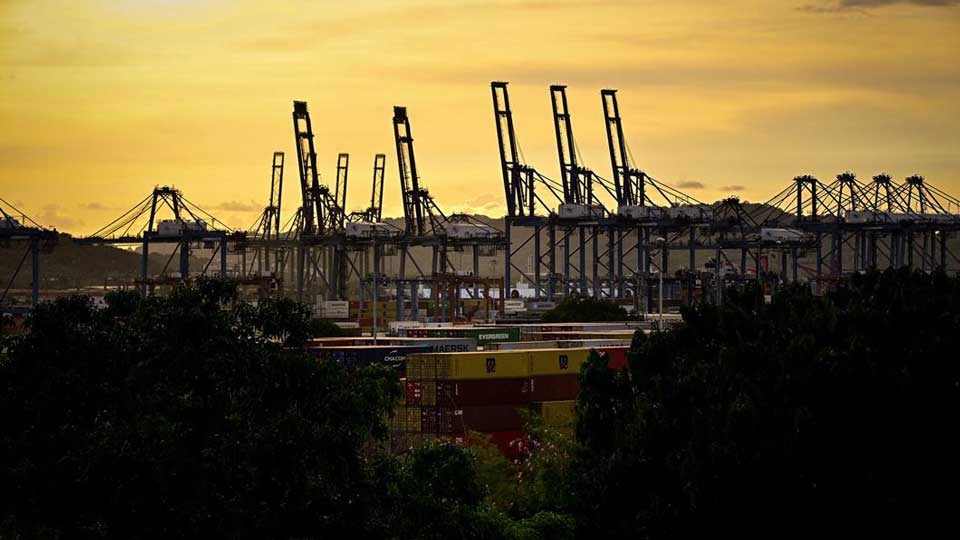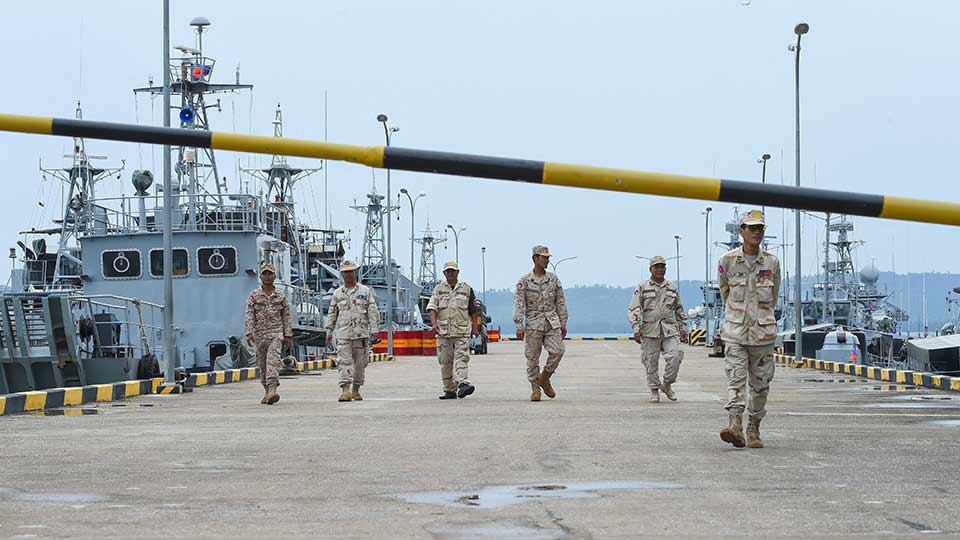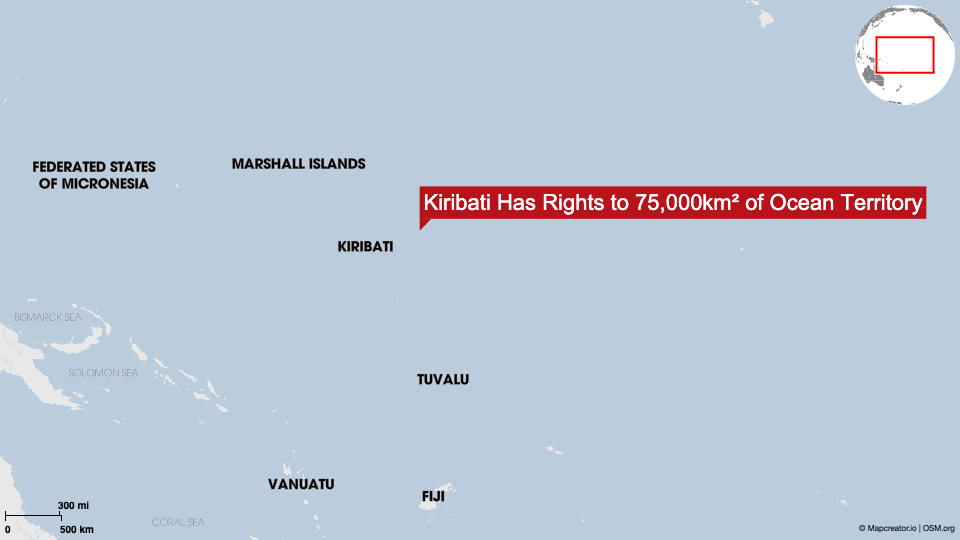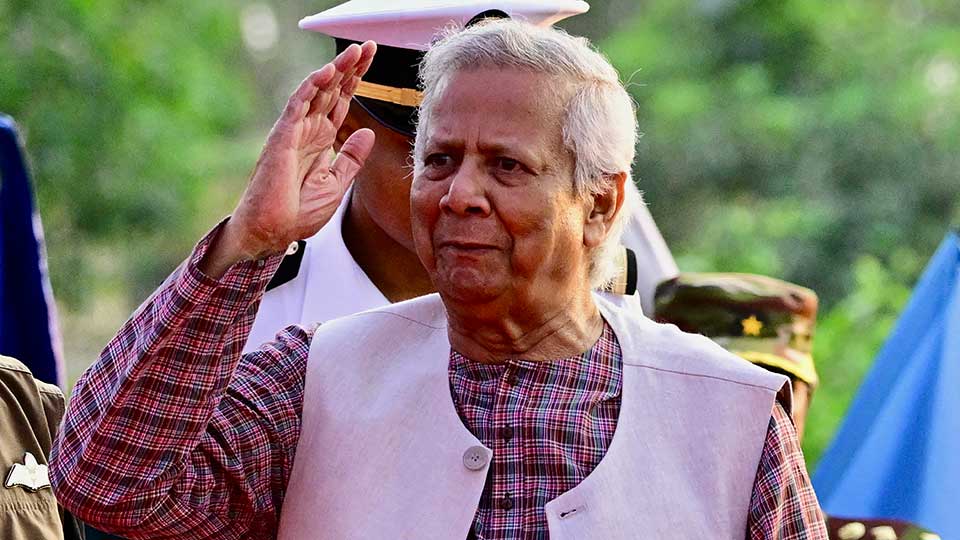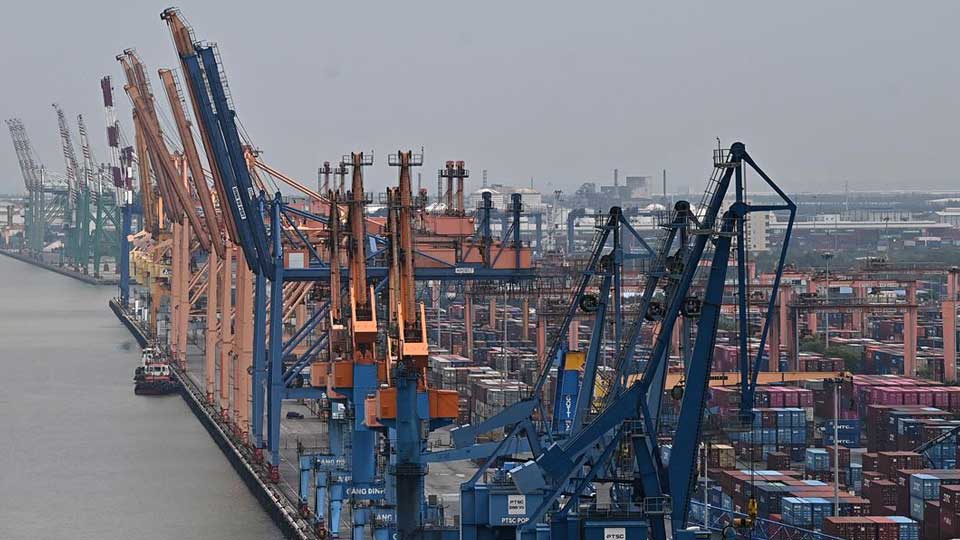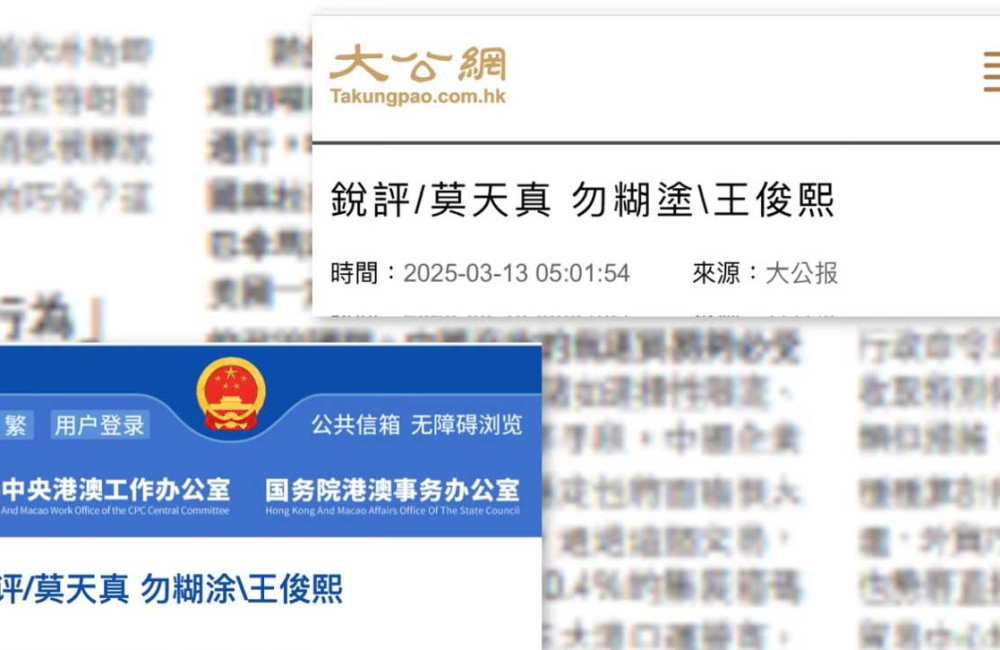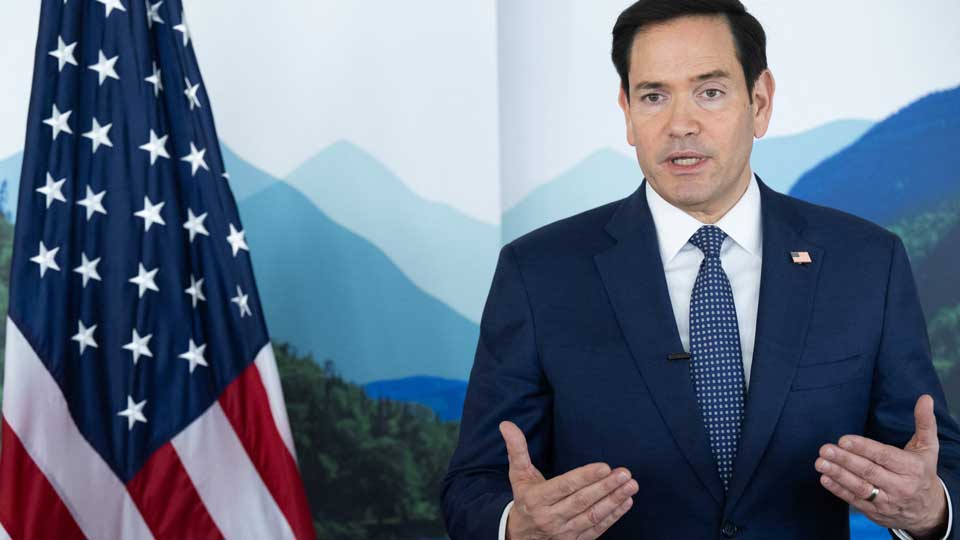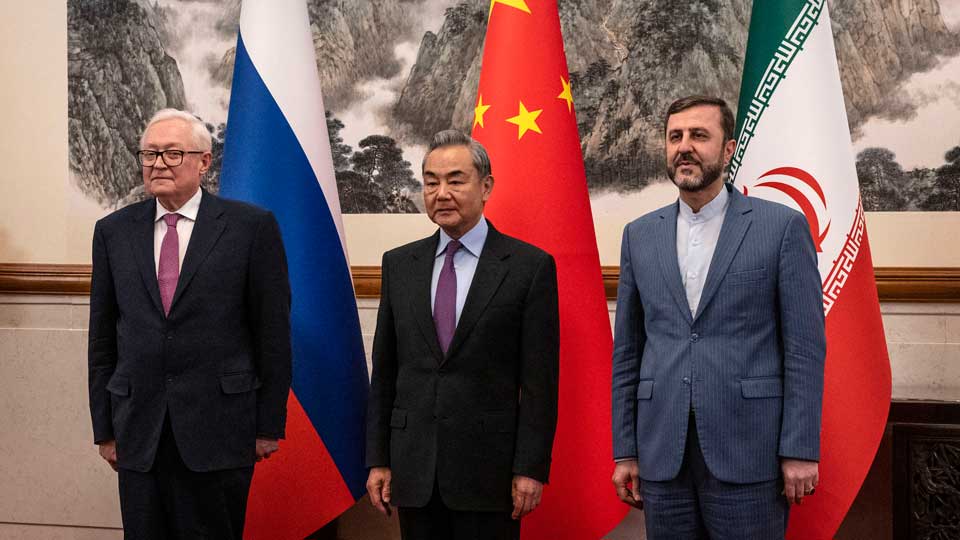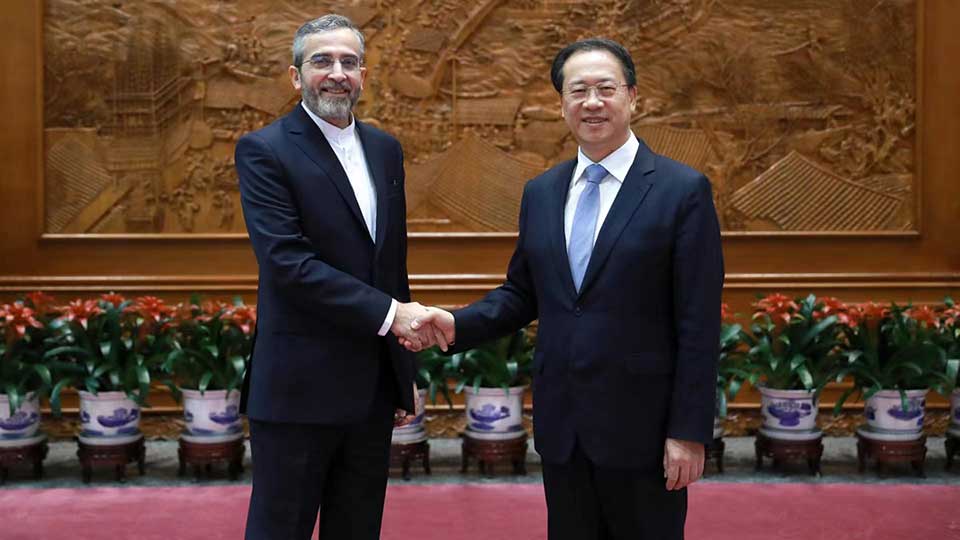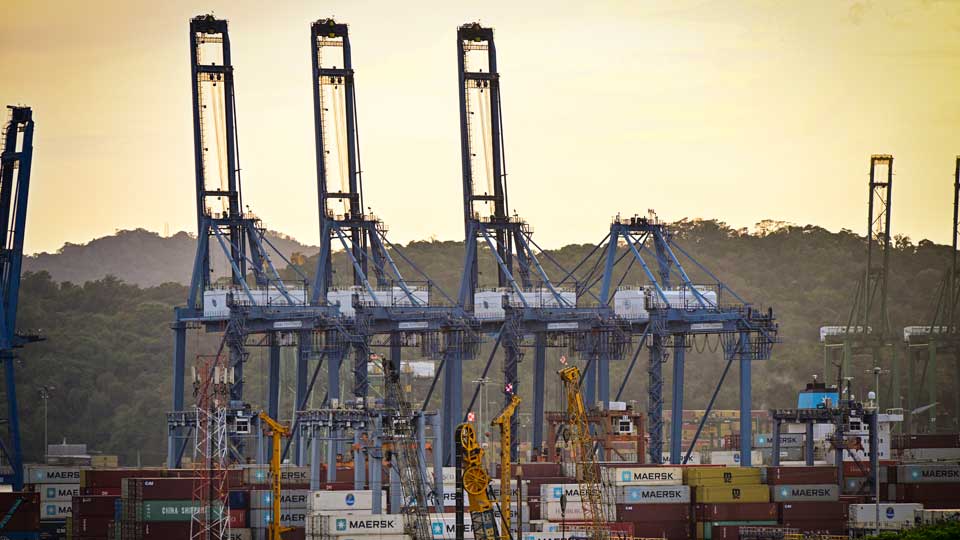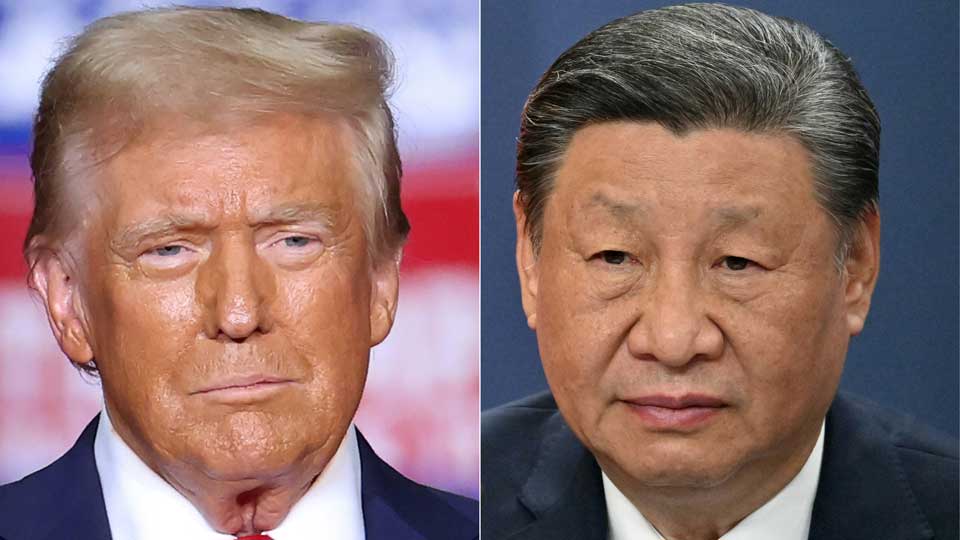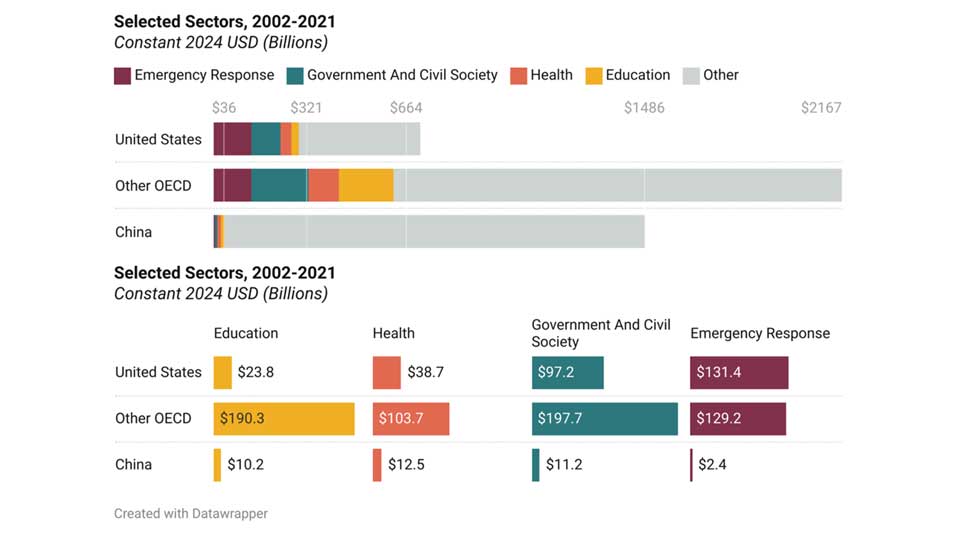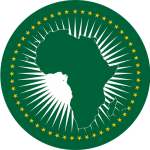Live Feed
The News Feed is curated by CGSP’s editors in Asia and Africa.
China’s Durian Market Heats Up as Indonesia Challenges Thailand and Vietnam
WEEK IN REVIEW: BYD Unveils EV Charging as Fast as Pumping Gas
U.S. Sanctions Houthi-Linked China Oil Refinery
The United States on Thursday sanctioned a China-based oil refinery that purchased Iranian oil worth around $500 million from Houthi-linked ships as the White House ramps up pressure on Iran.
In a statement, the U.S. Treasury Department announced it was sanctioning a "teapot refinery" based in China's Shandong province, which bought Iranian oil worth "approximately half a billion dollars."
Teapot refineries are small, privately owned operations in China and stand in contrast to the larger state-owned enterprises in the country.
Since returning to office, U.S. President Donald Trump reinstated a campaign of "maximum pressure" against Iran and has already rolled out sanctions against several individuals and entities, including the country's oil minister.
The oil in question was transported by Iran's so-called "shadow fleet" of tankers, according to the Treasury Department, including from ships linked to the Houthis and to the Iranian Ministry of Defense of Armed Forces Logistics, MODAFL.
The Treasury Department also sanctioned 19 ships and companies responsible for supplying the refineries.
"Teapot refinery purchases of Iranian oil provide the primary economic lifeline for the Iranian regime, the world's leading state sponsor of terror," Treasury Secretary Scott Bessent said.
The US State Department unveiled its own sanctions against a Chinese oil terminal on Thursday.
"These sanctions are being imposed pursuant to President Trump's maximum pressure campaign to drive Iran's oil exports, including to China, to zero," State Department spokesperson Tammy Bruce said in a statement.
"China is by far the largest importer of Iranian oil," she continued, adding that Tehran used these oil revenues to "finance attacks" against U.S. allies and to support terrorism around the world.
Philippines Pushes for India to Join Anti-China “Squad”
Thai Ministers Travel to Xinjiang to Visit Deported Uyghurs
Two senior Thai government ministers traveled to China's northwestern Xinjiang region on Wednesday to assess the conditions of dozens of Uyghurs deported from the kingdom last month.
Thailand last month sent at least 40 Uyghurs back after they had spent years in Thai detention facilities after fleeing China more than a decade ago.
The move sparked international condemnation, with the United States announcing visa bans last week for Thai officials involved in the deportations.
Thailand defended its decision, saying it had "received assurances" from China that the Uyghurs would be treated well.
On Wednesday, Deputy Prime Minister Phumtham Wechayachai—who also serves as defense minister—and Justice Minister Tawee Sodsong arrived in Kashgar for an official visit.
The ministers were met by Qi Yanjun, a Chinese vice minister for public security, who briefed them on the Uyghurs' treatment since their return, the Thai defence ministry said in a statement to journalists.
Qi told them that most of the Uyghurs had returned to their homes, but some were being treated in hospital, the statement said.
The Thai delegation is to visit some of the Uyghurs at their homes -- on visits arranged by the Chinese authorities.
"We will see what they allow us to access, given the time constraints," Phumtham told reporters late Tuesday evening at a military airport in Bangkok before his departure.
He added that he is scheduled to meet with doctors to inquire about the deportees' conditions.
"We will try our best, but their homes are quite far apart, and Xinjiang is three times larger than Thailand," he said, adding that those who cannot be visited in person will be contacted by video call.
Rights groups and Uyghurs overseas allege that China has detained more than a million Muslims, mostly Uyghurs, in a network of facilities in Xinjiang that are rife with violence, torture, forced labor, political indoctrination, and other abuses.
Beijing vehemently denies the accusations, saying its policies in Xinjiang have eradicated extremism and boosted development and that the facilities were voluntarily attended training centers that closed years ago after attendees "graduated."
China's Foreign Ministry Spokeswoman Mao Ning, who asked about the Thai visit, said the repatriations were entirely legal.
"This was normal law enforcement cooperation between China and Thailand in accordance with the laws of both countries, international law, and international convention," she said at a regular briefing.
"The relevant personnel have had their legal rights fully guaranteed."
Human Rights Watch has urged the Thai officials to use their trip to demand "unfettered" access and to publicly press China about "their abuses against Uyghurs."
Chile Reviews Chinese Observatory Plans Slammed by U.S.
China Calls for End of Gaza Bombings
Toy Trouble: Vietnam Pulls Dolls Over South China Sea Map
China Beams Approval of Indian PM’s Comments
China Pushes Back Against Panama Port Sale
Hong Kong Leader Says Concerns Over Panama Ports Deal Warrant ‘Attention’
Cambodia Set to Open Chinese-Renovated Naval Base
Kiribati Eyes Deep-Sea Mining Deal With China
China Urges ‘Dialogue’ After Yemen Rebels Say Attacked U.S. Carrier
Bangladesh’s Yunus to Visit China This Month
Chinese Communist Party Celebrates Closure of Voice America, Washington’s “Factory of Lies”
Vietnam Aims for $454 Billion in 2025 Exports, but China-U.S. Trade War Poses Risks
Thai Ministers to Visit China to Meet Uyghur Deportees as West Condemns and Imposes Visa Sanctions
A high-level Thai delegation is set to travel to China on Tuesday to check on the condition of 40 Uyghurs deported in late February, following criticism from the United States, the European Union, and other Western nations over the repatriation.
Government spokesman Jirayu Houngsub confirmed that the visit is part of an agreement between Bangkok and Beijing, allowing Thai officials to monitor the treatment of the Uyghur deportees.
He said the Thai government spent several months verifying information from China before approving the deportation and insisted the decision adhered to humanitarian principles.
Jirayu, who will be part of the delegation, stated that the visit should address concerns raised by Western governments and human rights organizations regarding the deportees’ welfare.
Thai Delegation Heads to Kashgar for Inspection
The delegation will include Deputy Prime Minister and Defence Minister Phumtham Wechayachai, Justice Minister Pol Col Tawee Sodsong, National Security Council Secretary-General Chatchai Bangchuad, and Deputy National Police Chief Pol Gen Kraiboon Suadsong. Nine journalists from various media outlets will accompany them.
Departing Tuesday, the group will arrive in Kashgar, Xinjiang, at 7 a.m. the following day.
According to Jirayu, the delegation will meet some of the deportees in Kashgar on the first day.
On the second day, they will visit the remainder of the group, who are reportedly settled outside the city, and discuss the situation with local Chinese officials and Muslim community leaders.
The delegation is expected to return to Thailand early Friday morning. Jirayu noted that further visits are planned, though he did not specify details.
U.S. and Allies Criticism and Thailand’s Response
The Thai government’s decision to deport the Uyghurs has drawn strong condemnation from the U.S. and its allies, with Washington, Brussels, and human rights organizations arguing that the deportees may face persecution in China.
On March 15, the U.S. State Department announced visa restrictions on unspecified Thai officials involved in the deportation, in line with a broader U.S. policy against the forced return of Uyghurs to China.
"In light of China’s longstanding acts of genocide and crimes against humanity committed against Uyghurs, we call on governments around the world not to forcibly return Uyghurs and other groups to China,"
He added, “I am immediately implementing this policy by taking steps to impose visa restrictions on current and former officials for the government of Thailand responsible for, or complicit in, the forced return of 40 Uyghurs from Thailand on Feb. 27.”
While the U.S. has sanctioned Thai individuals and companies before, there has been no record of sanctions on government officials prior to this case.
The European Parliament also passed a resolution condemning Thailand and urging the European Commission to consider using trade negotiations to prevent further deportations.
Vice Minister for Foreign Affairs Russ Jalichandra defended Thailand’s decision, saying it was based on Beijing's assurances that the deportees would be treated fairly, “Unfortunately, countries that are supposed to be Thailand’s friends have chosen to condemn us,” Russ said.
“Pointing a finger is always easy.”
Thailand Vice Minister for Foreign Affairs Russ Jalichandra
Russ also rejected claims that the deportees were forcibly sent back, stating they had expressed willingness to return after hearing from relatives about improved conditions in their hometowns.
Regarding concerns about the deportees' fate, Russ said, “A thorough investigation and follow-ups will prove if such concerns are warranted or not.”
He also questioned the logic of those criticizing Thailand’s decision, arguing that keeping the Uyghurs in indefinite immigration detention was not a solution.
China’s Position on the Uyghurs
Beijing maintains that Uyghurs who return from abroad are reintegrated into society through vocational training programs.
While the United Nations and Western nations have raised concerns over Uyghurs facing repression, many governments in Asia, the Middle East, and Africa have not publicly opposed China’s policies in Xinjiang.
However, with U.S. and European criticism escalating, Bangkok faces growing diplomatic pressure over its handling of Uyghur asylum seekers.
As Thai officials prepare for their fact-finding mission in China, the visit will likely be closely watched—both by supporters of Thailand’s repatriation policy and by those who remain skeptical of China’s treatment of Uyghurs.
Hong Kong’s Hutchison Under Fire Again for Panama Ports Deal
Thailand Says Assured of Uyghurs’ Safety After U.S. Visa Bans
U.S. Bars Thai Officials Over Uyghur Deportations
Niger Expels Three Chinese Oil Executives: Reports
China Urges End to ‘Illegal’ Sanctions as It Hosts Iran Nuclear Talks
China, Russia, Iran Hold Nuclear Talks, Demand End to Unilateral U.S. Sanctions on Iran
CK Hutchison Stocks Dive After Chinese Criticisms of Ports Deal
WEEK IN REVIEW: Trump Could Visit China in April, Sources Say
China Urges ‘Diplomatic’ Iran Nuclear Solution Ahead of Beijing Talks
China Vows Counterterrorism Cooperation with Pakistan Following Train Hijacking
Why China Won’t Replace Western Aid
Introducing CGSP Intelligence
CGSP Intelligence gives you the information advantage on Chinese activities in the Global South. CGSP Intelligence is launching in Summer 2025, with analysis and a full set of data tools designed for corporate and enterprise leaders.

